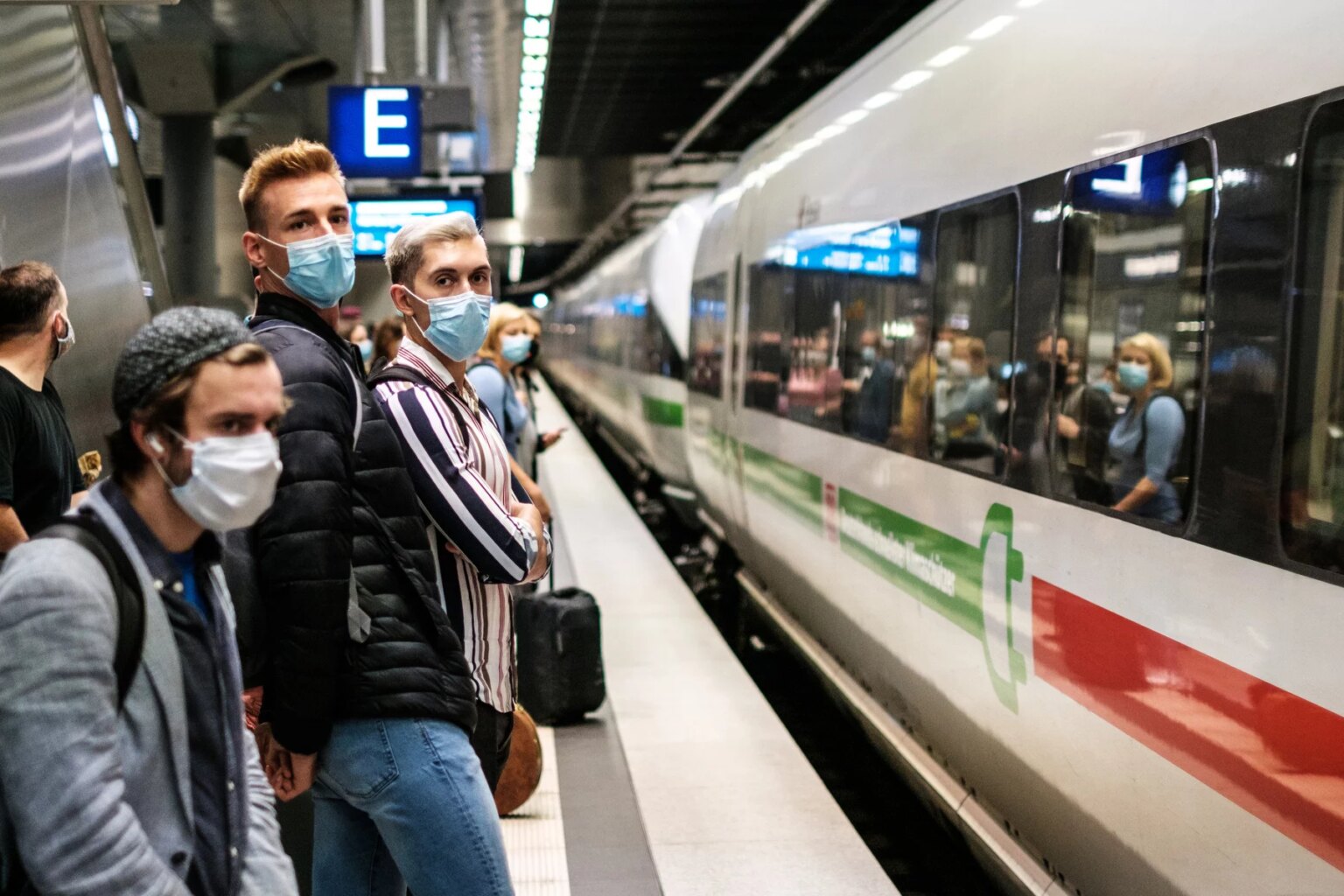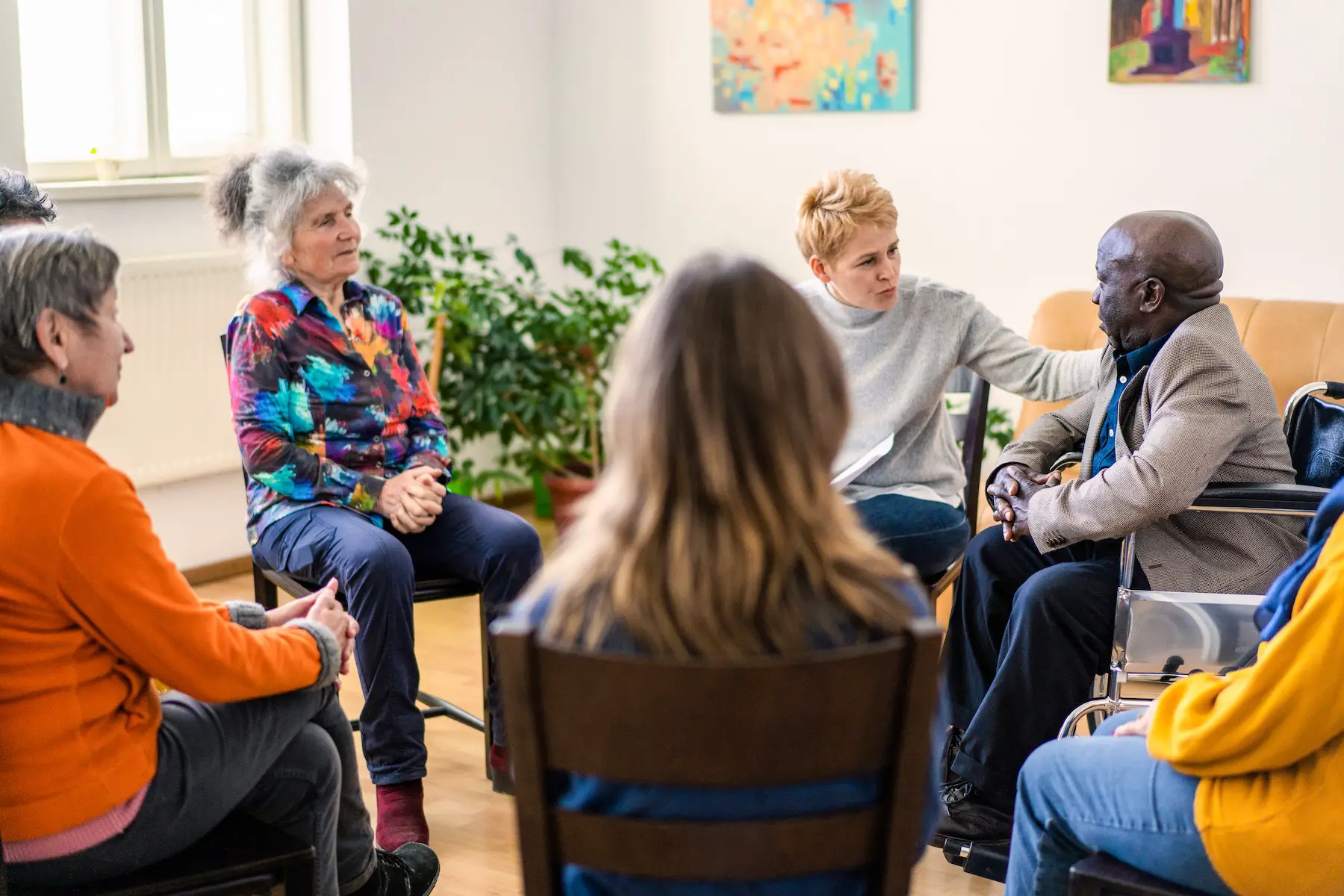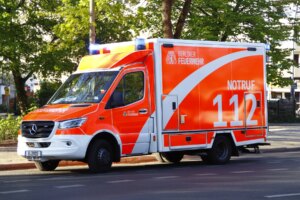Germany first detected coronavirus cases at the end of January 2020. The country was hit hard by the pandemic. As a result, Germany imposed rigid restrictions on its population to control the infection rates. Consequently, its strict measures proved successful.
This guide gives you an overview of the German coronavirus situation and explains where you can find information and support. Sections include:
- COVID-19 in Germany
- Coronavirus rules and measures in Germany
- Apps for COVID-19 in Germany
- Coronavirus testing in Germany
- COVID-19 vaccinations in Germany
- International travel during COVID-19 in Germany
- Long COVID support in Germany
- Coronavirus support for businesses, the self-employed, and freelancers in Germany
- COVID-19 and education in Germany
- Support around COVID-19 for vulnerable people in Germany
Cigna Global
Enjoy peace of mind while living in Germany with Cigna Global’s long-term international health insurance plans (12+ months). Get tailored coverage, direct billing with many providers, complex case management, and global care on demand, with access to a network of 1.5+ million doctors, specialists, and therapists.
COVID-19 in Germany
Germany divides into 16 Bundesländer or federal, autonomous states, which form the Federal Republic of Germany. Each Bundesland governs its own state. Therefore, each state can also establish its coronavirus rules and regulations. However, each Bundesland must adhere to the agreement with the Bundesregierung – central government of Germany – to unify the COVID-19 response. This approach differs from other countries which have had a more centralized response.
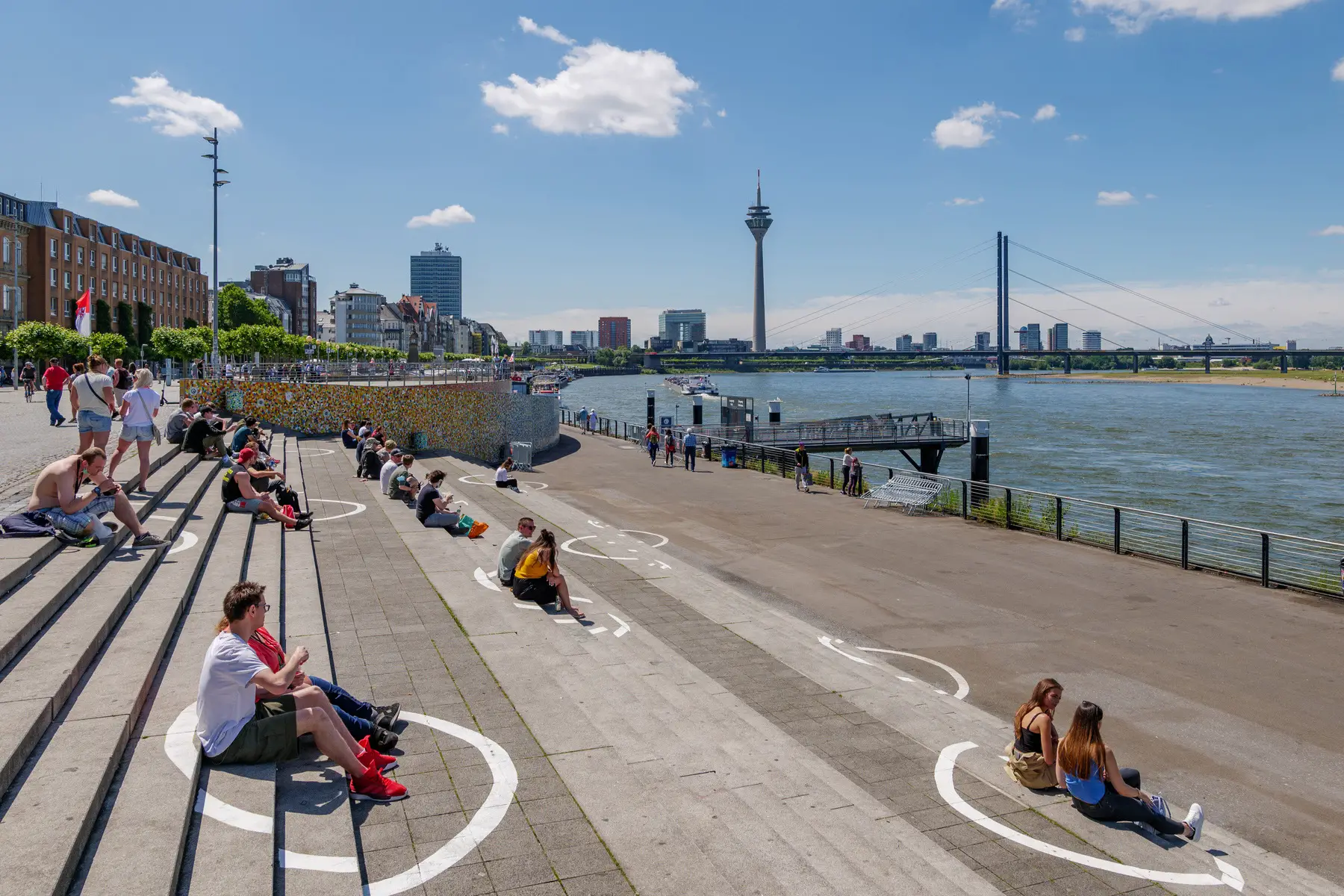
The first coronavirus infection in Germany was detected on 27 January 2020 in Bavaria and the first death occurred in the second week of March. The pandemic spread throughout the Bundesländer, apparently faster in the south than in the north. According to COVID-19 statistics from Johns Hopkins, Germany has had relatively few COVID-related deaths compared to other countries, such as the US or UK. Its success is because of drastic measures, an early testing policy, and widespread vaccinations. See more coronavirus statistics published by the Robert Koch Institute (RKI). The RKI forms part of the Ministry of Health to monitor and prevent disease in Germany.
The Bundesministerium für Gesundheit (Ministry of Health) is responsible for healthcare. Consequently, it also oversees the public health response to coronavirus in Germany. Of course, the ministry collaborates with their federal counterparts in the Bundesländern. You can find updated information about the current measures in each Bundesland here.
Moreover, coronavirus-related support and advice are available through the Federal Government website and the Robert Koch Institut (RKI) in Germany.
Coronavirus rules and measures in Germany
Germany has implemented various measures and regulations to combat the spread of COVID-19 since 27 January 2020. It mandated lockdowns, the closing of businesses and non-essential shops, strict border control, mandatory face coverings, and social distancing. However, the government amends these measures according to the infection and hospitalization rates.
The government declared the first strict lockdown on 16 March 2020. It lasted about a year. On 22 April 2020, facemasks (FFP2, FFP3, or OP) became compulsory, but the obligation differed between states. In all states, masks are mandatory on public transport. However, only some states mandate wearing masks inside shops and other enclosed spaces.
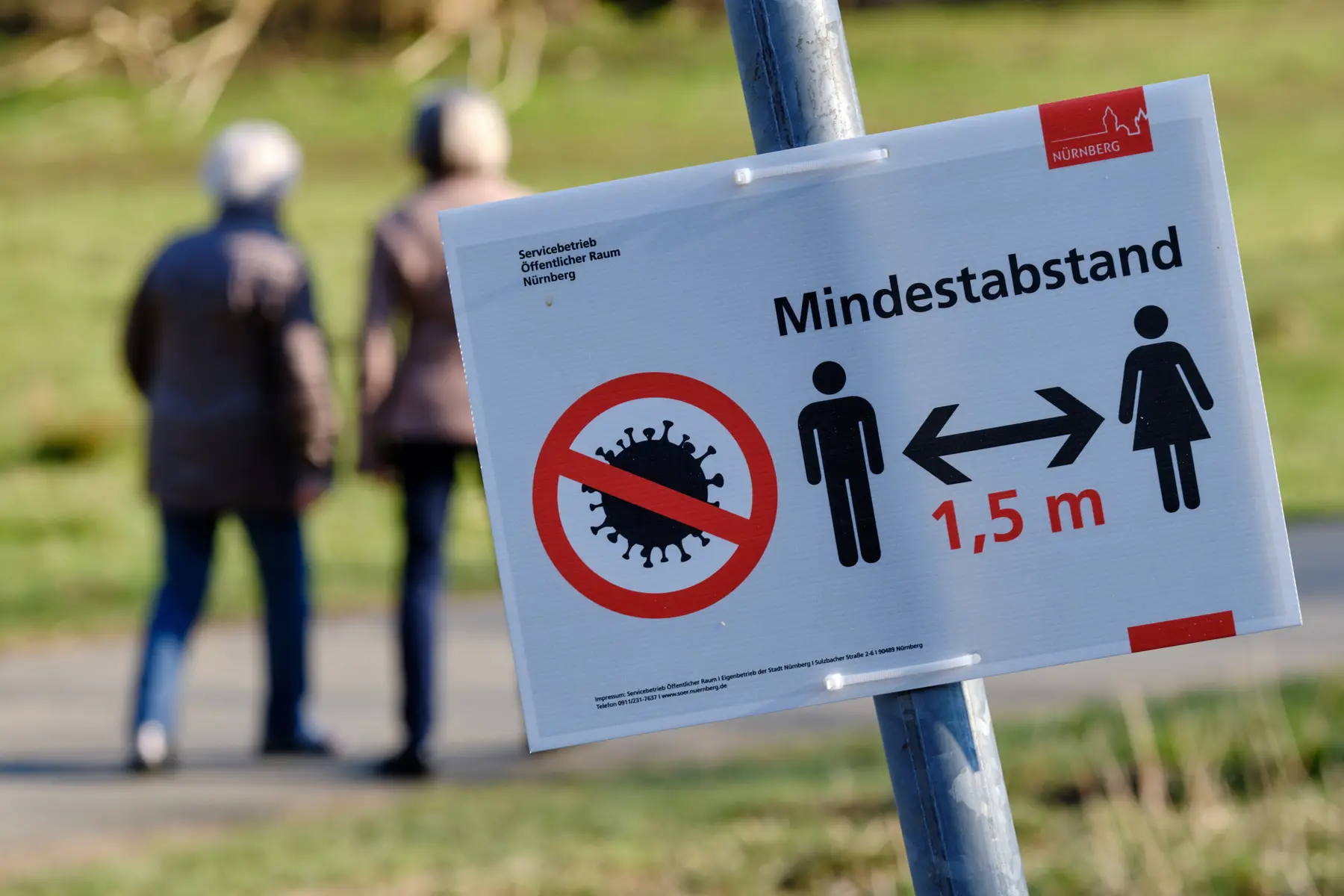
In Germany, the safety distance between people was established at 1.5 meters. Furthermore, health campaigns discouraged handshakes and advised elbow bumps, frequent handwashing, and sneezing or coughing in your elbow. Principally, the federal government has passed a Protection Against Infection Act, approved by all Bundesländern. It includes providing up-to-date infection protection information by the Federal Center for Health Education (Bundeszentrale für gesundheitliche Aufklärung – BZgA).
Germany was one of the last countries to close its borders on 16 March 2020. Subsequently, Germany imposed strict border control restrictions for travelers. Nowadays, these may include being fully vaccinated, showing proof of a negative test, and completing a person locator form. In some cases, you may even need to quarantine. The requirements depend on your country of departure.
Non-essential shops and businesses largely reopened on 22 March 2021, with hairdressers, gyms, and theatres opening a few days earlier. Simultaneously, the government eased restrictions for socializing inside and outside the home.
Apps for COVID-19 in Germany
The Coronavirus Warn app (CWA) has become increasingly popular with Germans as a contact-tracing device. In addition, the CovPass App digitally presents your vaccination certificate and passport.
Coronavirus testing in Germany
Health professionals use diagnostic tests to detect if a person has an active coronavirus infection. A tester will swab the upper respiratory tract (back of the throat and nasal passage) and test the sample for the presence of the virus.
Types of COVID-19 tests
There are three types of tests in Germany: the polymerase chain reaction test (PCR), the rapid antigen test, and self-testing kits. You can decide which test is right for you, depending on its purpose (e.g., travel or restaurant visits).
PCR test
Generally, you use this test if you need proof of a negative result for travel, have symptoms, or have been in close contact with someone who has tested positive. In Germany, you can access PCR tests at test centers, laboratories, and hospitals. You have to make an appointment, and the cost is around €130, depending on the laboratory and the Bundesland.
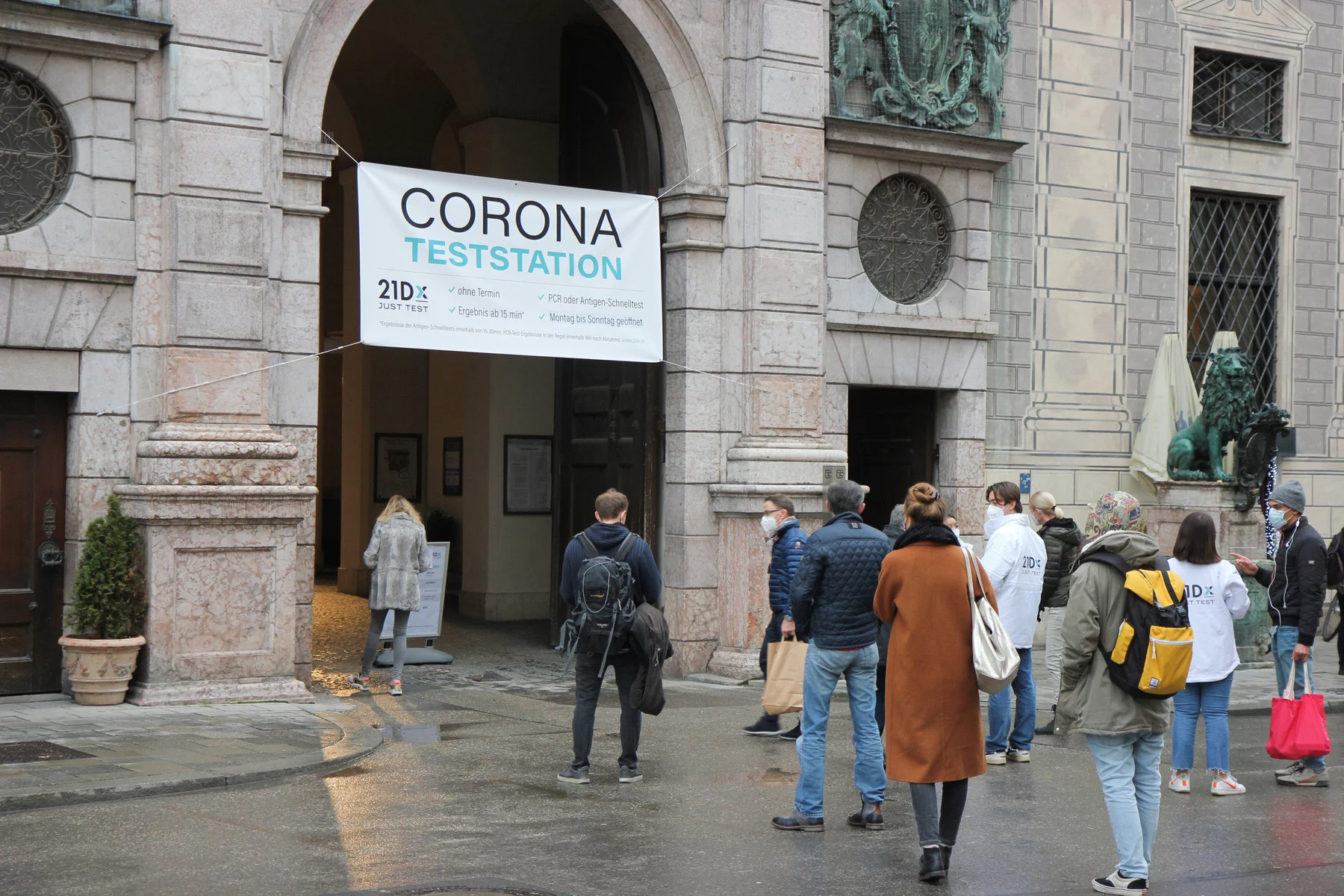
Only trained personnel, usually in protective gear, take a nose and throat swab. However, the PCR test is the most reliable and you get a certificate, which is mandatory for travel to and from Germany from some destinations, even if fully vaccinated.
Antigen (rapid) test
As the name indicates, the antigen test gives test results quicker than the PCR test but is less sensitive. First, a qualified technician or healthcare worker takes a nose or throat swab. Thereafter, they test the mucus for the presence of COVID-19 antigens. Antigens are pieces of the virus (proteins) that can produce an immune response in the body.
You must book an appointment at a test center or consultant. These tests are available in Germany at specially created test centers, chemists, or doctor’s consultancies. After 11 October 2021, you have to pay for these tests (with some exceptions). Moreover, the tests cost between €18 and €40, depending on the price set by the chosen test facility.
Self-testing
In addition, you can buy self-testing kits from German supermarkets or pharmacies. When you perform the test, make sure to follow the instructions carefully and thoroughly swab your tonsils and inside of your nostrils. You should have a result within 30 minutes. You can also order a self-test kit online.
Antibody test
This test checks your bloodstream – with a fingerprick test – for antibodies against coronavirus. Your body may produce antibodies because of earlier infection or in response to the vaccine. These tests cost around €25 and are only available at some centers.
What to do if you test positive for coronavirus in Germany
When you test positive, your symptoms can range anywhere from mild to severe. Conversely, you may even be asymptomatic. Start isolating at home immediately and notify all your recent contacts. Don’t leave the house, limit contact with your household members, and observe strict hygiene rules (i.e., washing and disinfecting hands and everything you touch.)
Additionally, the laboratory or test center informs the local health agency (Gesundheitsamt) that supervises your isolation. Usually, quarantine lasts up to 14 days.

The Gesundheitsamt – in cooperation with your doctor – will inform you when you can come out of isolation. Also, the RKI offers valuable information if you had contact with a person who must quarantine.
COVID-19 vaccinations in Germany
Vaccinations against coronavirus started in Germany on 27 December 2020. The population groups have been triaged, determining how quickly you can book an appointment. The rollout phase is prioritized according to age, being hospital patients or care home residents and first-line professions (e.g., doctors, nurses, police). You will find the complete list here.
Fortunately, Germany is faring well in terms of vaccinating its population against the coronavirus. Here, you can find updated information about Germany’s COVID-19 vaccination rates. You may also find it interesting to read more about Germany’s general vaccination schedule.
Approved vaccines in Germany
Vaccinating against coronavirus in Germany is not compulsory. Still, if you want to be vaccinated, you must contact one of the vaccination centers. However, the vaccination process differs between Bundeslaender. As such, in some states, you need to make an appointment, while others offer a walk-in service. Here, you can find detailed vaccination information across Germany.
In Germany, these vaccines are approved and accepted:
- BioNTech/Pfizer
- Moderna
- Oxford/AstraZeneca
- Johnson & Johnson
Interestingly, you can choose which vaccine you want, which differs from other countries. However, some centers may not have them all available. The Johnson & Johnson vaccine is a single dose, while the others have a two-dose series with 8 to 12 weeks in-between. Generally, you are only fully vaccinated 14 days after your final jab. Once fully vaccinated, you can obtain your vaccination certificate or COVID-passport online.
Germany was one of the first countries to issue the EU Digital COVID certificate (i.e., the global vaccine passport) aiming to restore free movement within the EU.
COVID passport/certificate regulations in Germany
Germany introduced a 2G and 3G status system to gain entry onto public spaces:
- 2G status – vaccinated or recently recovered person
- 3G status – tested negative person
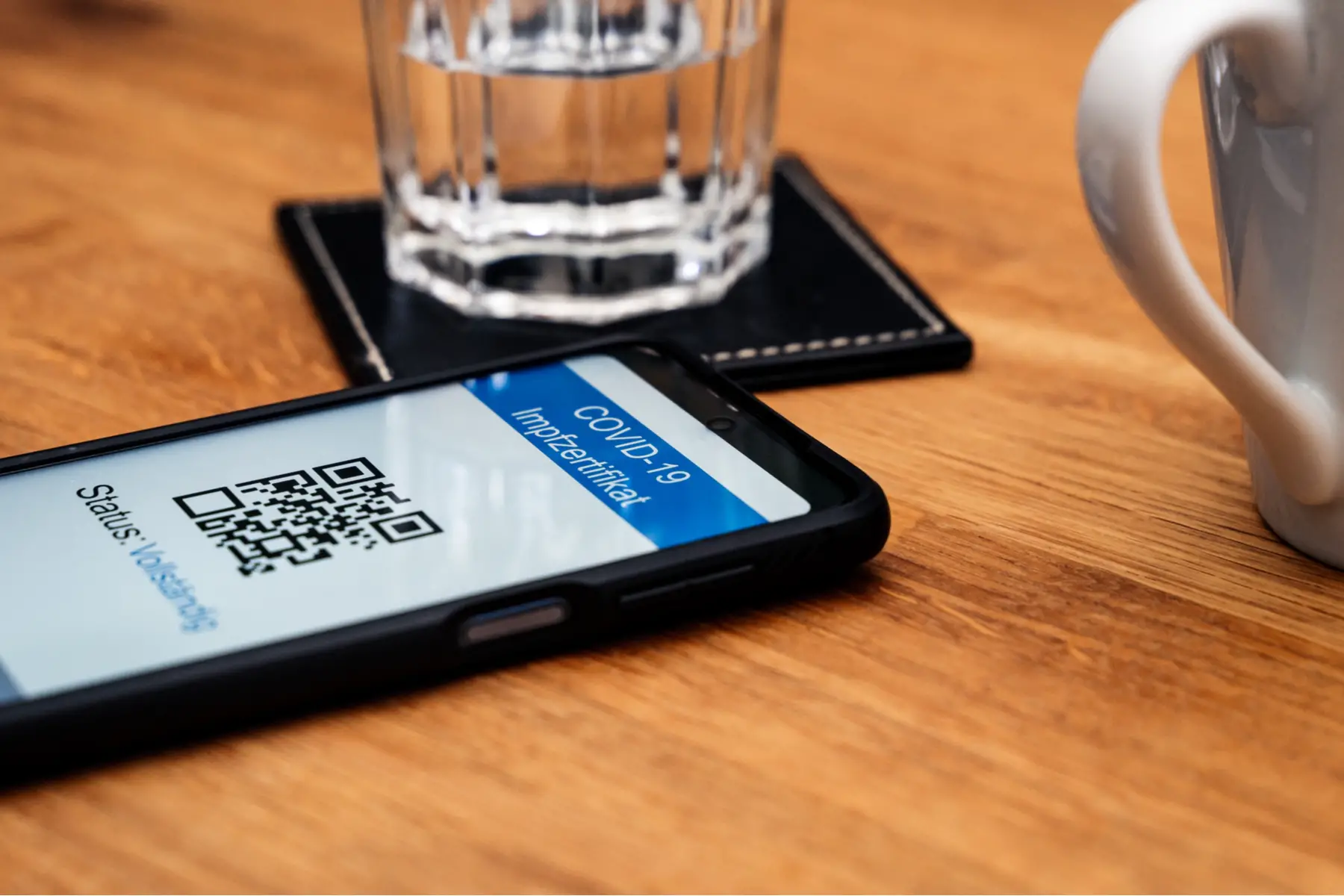
If you can’t show proof of either, your access may be restricted to restaurants, zoos, casinos, sports venues, and various other recreational spaces. Alternatively, if you visit a 2G-only venue and you have been vaccinated or have recently recovered, you may enter mask-free. The rules and regulations around this system do vary between the federal states.
International travel during COVID-19 in Germany
Before embarking on your trip to Germany, you must check the most recent travel restrictions by the Ministry of Foreign Affairs. For all requirements in detail, visit this website of the Bundesministerium für Gesundheit (Ministry of Health) or the Robert Koch Institute (RKI) for information in English. Note, if you violate any of these restrictions, you may be fined up to €25,000.
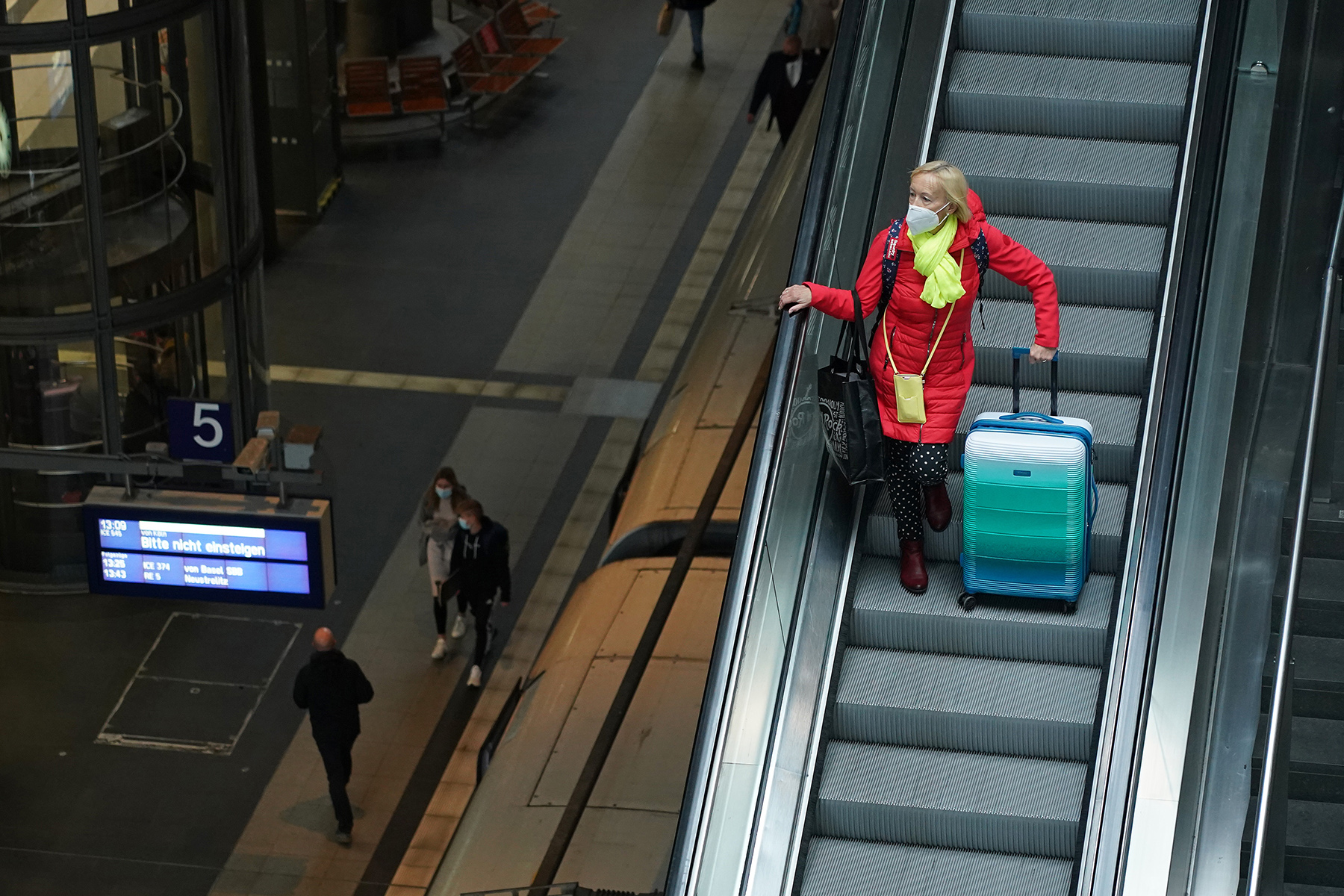
Restrictions depend on whether you have traveled from a high-risk country or not. However, all travelers (above 12) must provide proof of one of the following:
- Vaccination certificate
- Recovery certificate
- Negative test certificate
- Antigen (no older than 24 hours before entry)
- PCR (no older than 72 hours before entry)
In addition, if you traveled from a high-risk area or from an area with variants of concern, you are also obliged to:
- Register at the German travel portal before entering the country. Keep proof of your registration for inspection by the federal police.
- Quarantine immediately at your home or suitable accommodation for 10 days. You can only leave quarantine early (on the fifth day) with proof of vaccination or a negative test. You have to submit the certificates on the German travel portal. Children under 12 only have to quarantine for five days.
- Quarantine is extended to 14 days if you travel from an area with variants of concern. This rule also counts for vaccinated and recovered persons.
- If you develop coronavirus-related symptoms, contact your GP or health office immediately.
You can visit the government’s official portal to find out about exceptions and any frequently asked questions about the international travel restrictions to Germany.
Long COVID support in Germany
Having recovered from COVID-19 does not necessarily guarantee full health. An estimated 400.000 people in Germany suffer from what is known as Post COVID-19 Fatigue Syndrome (i.e., long COVID). Health complaints include:
- Chronic heart, lung, or liver problems
- General fatigue
- Pain
- Cognitive issues (e.g., brain fog)
For some, this condition even proved too debilitating to return to work. Unfortunately, little has been done to diagnose the condition or mobilize help and support for sufferers. The charitable initiative Long COVID Deutschland has petitioned the federal government in August 2020 to change this. However, NAKOS (an information and support platform for self-help groups) provides a complete list of coronavirus-related self-help groups in each state. Also, since July 2021, the public and private German health insurer DAK launched a hotline for long COVID sufferers. You could also check with your health insurance in Germany for support. Also, we list the best expat health insurance quotes to choose from.

Help for children and adolescents comes from private sources like Dr. Peter Ilsiger or the Kinderspital in Munich. Moreover, a study by the University of Erlangen-Nuremberg is underway to help with diagnosis of long COVID.
Coronavirus support for businesses, the self-employed, and freelancers in Germany
The pandemic has caused a massive economic crisis all over the world, and Germany is no exception. The GDP declined by 4.9% since 2019 and reached its lowest level with 9.7% in the second quarter of 2020. Luckily, a trend to recovery has emerged in 2021.
The federal government launched a financial support scheme called Corona Schutzschild (corona protective shield) in Germany. It has decreed to spend €353 billion to aid businesses, the self-employed and freelancers, and €819 billion in grants and guarantees. This scheme also paid out another €50 billion for immediate business support. To illustrate, companies with a maximum of 10 employees received a grant of €10.000 for three months, while businesses with up to five employees received a grant of €9000 for three months.
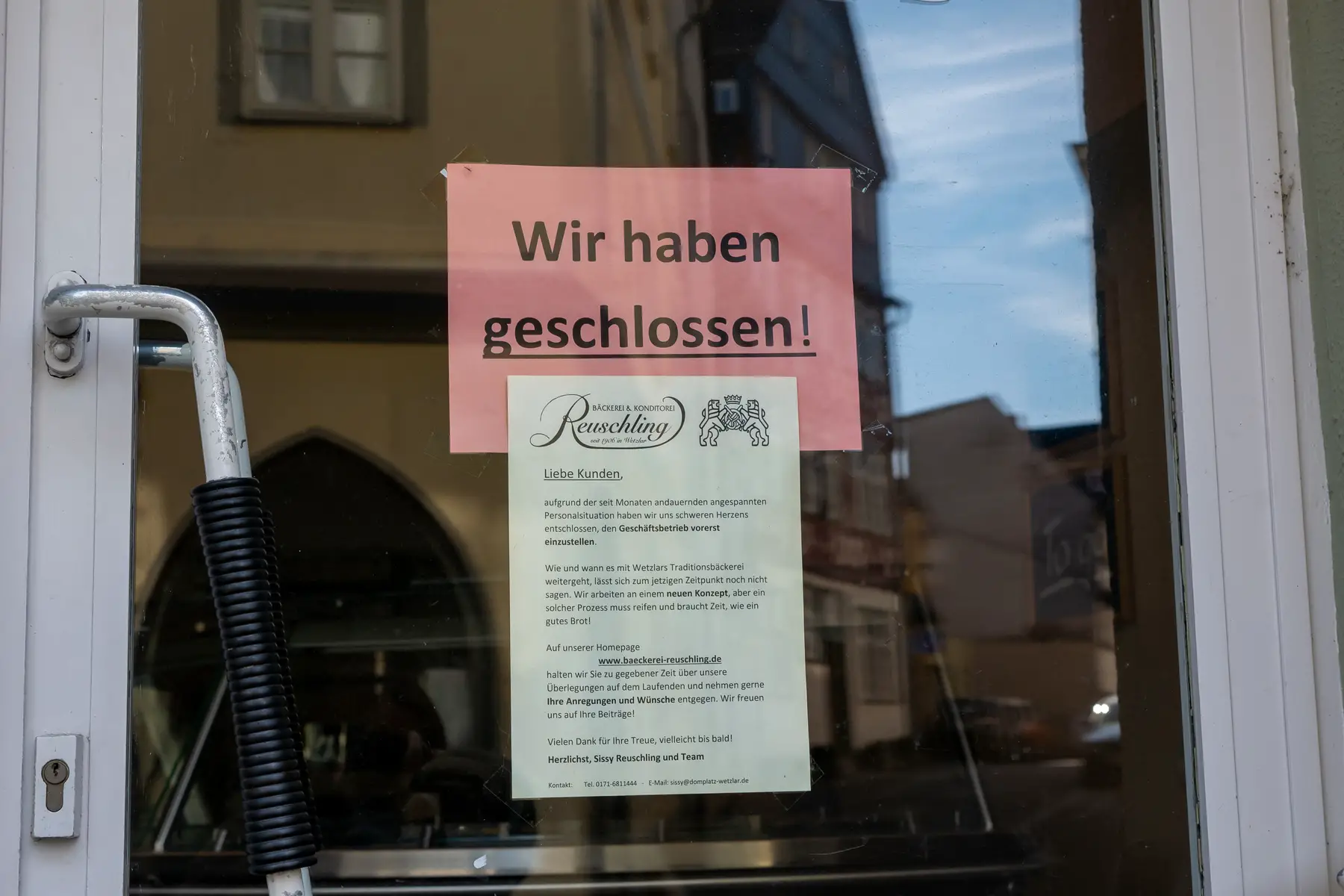
The Bundeslaender oversees the support and provides details on where to apply depending on your business location or residence if you are self-employed or a freelancer. There is also a fund for larger companies and enterprises, which is partly €400 billion in bonds and guarantees. Furthermore, the government also offers different tax relief options for the self-employed, freelancers, and businesses. For more details, please see here. Be sure to also read our guide on taxes in Germany.
Families who sustained loss of earnings because of school and daycare closures also get compensation.
COVID-19 and education in Germany
Due to the pandemic, schools, universities, and other learning institutions, including daycares (kitas or kindertagesstätte), were closed for long periods. Online learning and homeschooling replaced classroom-based activities. Fortunately, the government established a financial scheme to support schools buying enough devices for every pupil to use at home.
Generally, German schools use these software programs to support their online classrooms:
- Padlet – share content to virtual bulletin boards
- Meetzi – for online student/class meetings
- Moodle – a learning management system
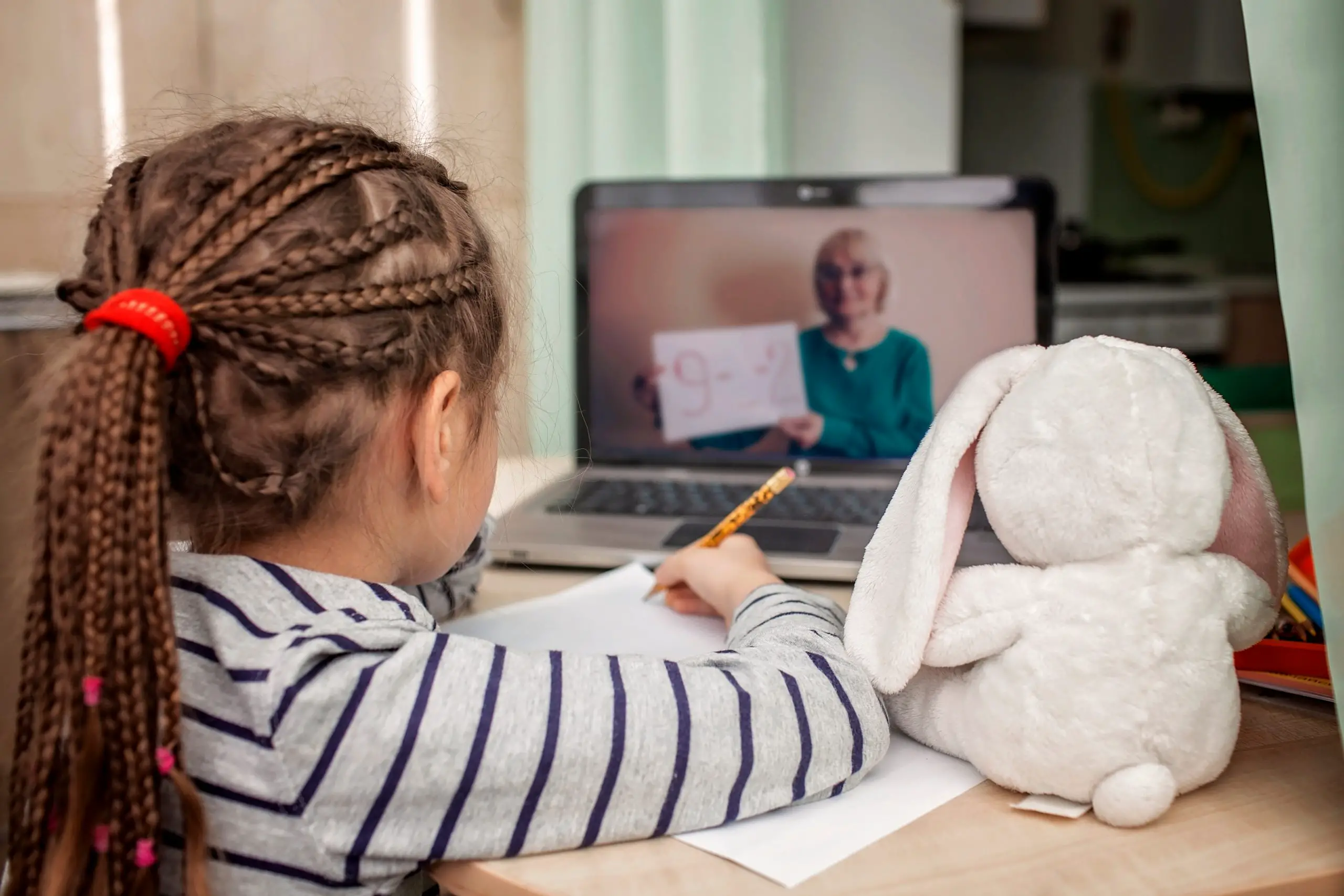
Universities plan to reopen in the winter of 2021 fully. Still, it depends on the development of the pandemic, and which measures (e.g., wearing masks, being fully vaccinated) are in place.
The same applies to schools, where some might opt for a combination of physical presence and online learning.
Support around COVID-19 for vulnerable people in Germany
Throughout the pandemic, seniors and persons with compromised immunity have been most at risk. As a result, they haven’t left home for many months. Mainly, they depended on friendly neighbors and relatives who helped them with daily errands (e.g., groceries). Additionally, the German verbraucherzentrale (consumer center) offers valuable advice when supporting a vulnerable person during the pandemic. In short, most support in Germany for vulnerable people comes from private initiatives, social workers, local charities, and in some cases, the Red Cross.
